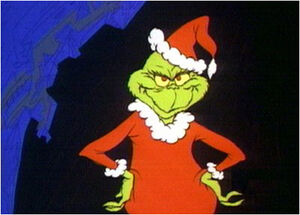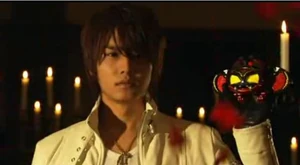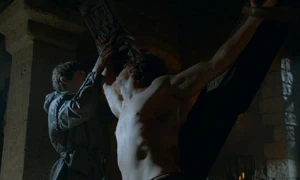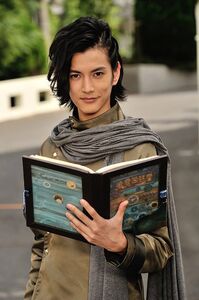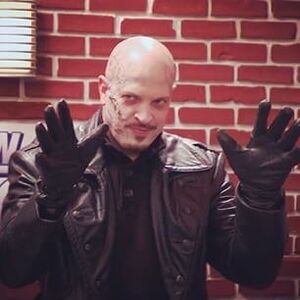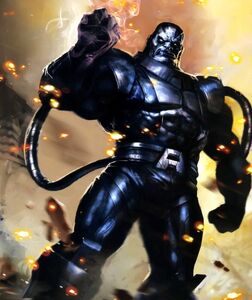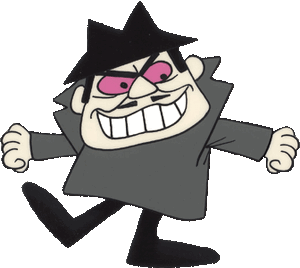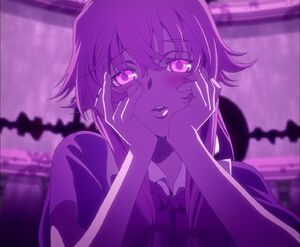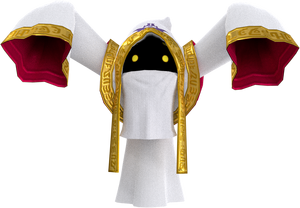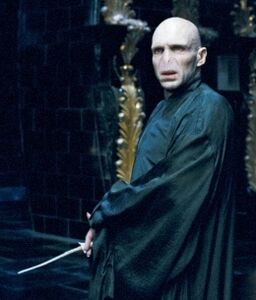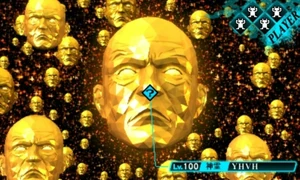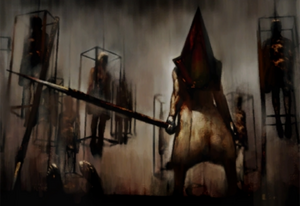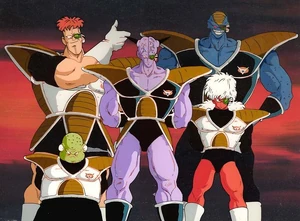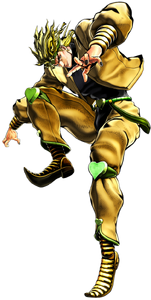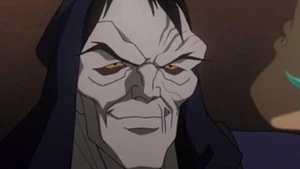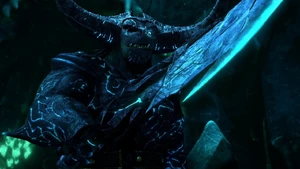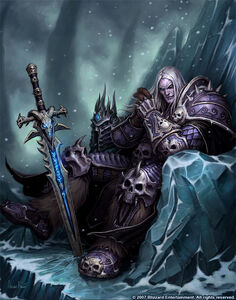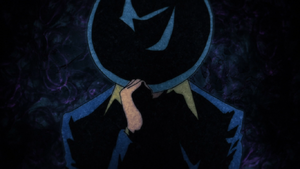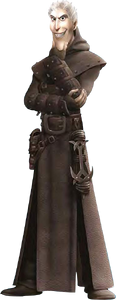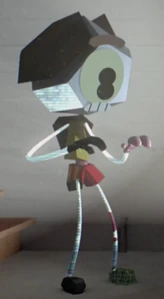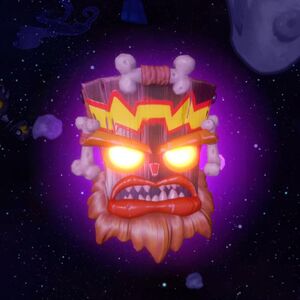| Types of Villains Index | ||
An alphabetical listing of villains by type.
R
- Rapists: Villains who commit rape or attempted to.
- Reality-Warpers: Villains capable of altering or bending reality itself.
- Reality Show Villains: A television program/show in which ordinary villains are continuously filmed, designed to be entertaining rather than informative.
- Redeemed: Villains that have "turned to good" or are at least no longer evil. This can include those who were and are no longer possessed by an evil force or those who have decided to join the hero.
- Related to Hero: Villains who are biologically in the same family as the protagonist.
- Remorseful: Villains who feel guilt, remorse and/or sorrow for the crimes they have done, but have not necessarily "turned good".
- Revived: Villains who previously died, but were somehow brought back to life.
- Right-Hand: The personal assistant and adviser to a major villain, often their second–in–command. Right-hands can serve as major villains in their own right.
- Rivals: Villains that are a type of archenemy who causes problems for a hero but often shares a mutual respect for his or her opponent.
- Rogues: A villain who works alone. They commit their evil without any help from minions or an army.
S
- Saboteurs: Villains who offer their services to others with the intention of betraying them later.
- Sadists: Villains who take pleasure from making people suffer.
- Sadomasochists: Villains who love causing pain to others and themselves.
- Samurai: Villains who are armored Asian knights and soldiers; others are Rōnin
- Satan: The in-universe depiction of Satan or its closest counterpart. The ultimate source of Evil, who controls all demons and malevolent beings, and most often ruler of Hell or any hellish-related dimension.
- Satanism: Villains that practice Devil-worship.
- Scapegoat: A villain that is punished way more than he or she would actually deserve, which is the exact opposite of a Karma Houdini. Include villains who have a horrible life, who are unfairly abused or killed by their masters or have a frightful and gruesome fate.
- Science Fantasy Villains: Science Fiction and Fantasy combined.
- Science Fiction Villains: Villains from Science-Fiction (Sci-Fi for short) genre works - science-fiction is based on scientifically-possible worlds or settings without the use of fantastical elements such as magic or the supernatural.
- Self-Aware: Villains who are aware of there own fiction existence.
- Sentient Weapons: Villains who are capable of independently thinking as weapons with functionalities and self-awareness with a higher intelligence than artificially intelligent beings and golems. They are also known as Weapon of Mass Destruction.
- Serial Killers: A villain who kills several people, often choosing specific targets and/or using an established pattern between murders.
- Servants of Heroes: Villains who served as some kind of subordinate to the hero.
- Shoot 'em up Villains: Villains featured in shmup (shoot 'em up) video games.
- Siblings: Villains who have siblings.
- Sitcom Villains: Villains who have appeared in television sitcoms.
- Skeletons: Villains who are animated skeletons.
- Slaver: Villains who take part in the act of owning and using slaves, forcing others into physical labor.
- Smugglers: Villains who are involved in secretly transporting illegal goods from one place to another.
- Snuff Filmers: Villains who combine murder and film into an even more serious crime.
- Soap Opera Villains: Villains who are in Soap Opera's
- Social Darwinists: Villains who believe in "survival of the fittest" and often seek to create a society or world in which only the most ruthless of individuals would exist to father the next generation.
- Sophisticated: Villains who are very cultivated and refined, often coming from high social status.
- Spouses: Married villains.
- Spies: A villain who uses espionage tactics to spy on others and gather information about them without the target knowing.
- Stalkers: Villains who like to stalk certain people, either by obsessive or murderous reasons.
- Starvers: Villains who cause others to starve to death, either through cruelty or negligence.
- Status Dependent on Version: Villains whose stories have had multiple versions/adaptations, and whose fates have differed in some of the different versions.
- Status Dependent upon Player Choice: Villains whose fate is different dependant on the player's choice in a video game.
- Stock Characters: Villains who appear in many different media.
- Strategic: Villains who use strategy to take out their foes instead of facing their enemies head-on.
- Successful: A villain who succeeds in their goals. This usually isn't added in the type of villain sections, but if a villain is extremely successful in all of their goals, then this might be added.
- Suicidal: Villains who try to take their own lives or succeed in that attempt.
- Summoners: villains capable of either bringing in people and/or creatures under their command.
- Superorganisms: A type of Hostile Species believed to have a "Hive-Mind Mentality" capable of working as a whole rather than individually and being extremely powerful as a result.
- Supervillains: The opposites of superheroes, who have incredible and unique abilities, either through actual superpowers or use of gadgets. Supervillains make numerous appearances and often will win against the hero on occasion.
- Supremacists: Villains who believes their species / ideology / religion is inherently superior to all others. Classic examples could be racists.
- Supreme Beings: Similar to Satan, this is the in-universe depiction of the traditional monotheistic God of most western religions, but as a villain.
- Symbolic: A villain representing an entirely larger concept than themselves.
T
- Tabletop Games Villains: Villains from tabletop games. This category also includes gamebooks, pen and paper RPGs, and card games.
- Teams: A group of villains who work together.
- Terrorists: Villains who commit unforgivable atrocities for political, religious gain, or simply by madness. Include mass-killers who randomly slaughter people in the streets or detonate buildings.
- The Heavy: The villain with the most influence on the plot, and the evil counterpart of the Hero.
- Theatrical Villains: Villains that have originated or appeared in plays, opera, and other media that often predates television or movies.
- Theme Park Villains: Villains who have originated on theme park rides, attractions, haunted houses, shows, or simply were mascots or characters.
- Theology Villains: Characters who originate in works based upon the religions of the real world.
- Thieves: Villains who are common crooks who steal things from others and can range from petty to extreme (it can range from minor thugs to organized robbers). Such characters sometimes suffers from kleptomania (the compulsive obsession to steal).
- Thought-Forms: Villains who appear in the mind.
- Thrill-Seekers: Villains who are addicted to danger or fast-paced action, often to the detriment of others; they may view danger as an addiction or simply are just criminally insane with no regard for personal safety (or those of others).
- Thriller Villains: villains from movies whose main elements are tension, suspense, and (to match it) excitement.
- Thugs: Common kinds of criminals who treat others disrespectfully and are often (if not always) willing to fight.
- Titular: Villains who are referred to in the very titles of the works in which they appear.
- Tokusatsu: Villains from the Japanese Tokusatsu TV genre.
- Torturer: A villain who tortures others, whether it be physically, mentally, or emotionally.
- Totalitarians: Villains who favour and share beliefs of a system in which the state has unlimited power over every aspect of public and private life, often run by a "supreme dictator", and often envisioned as an evil empire, new world order, or dictator-wannabe.
- Tragic: A villain who has suffered events in the past that have caused them to become evil or seek vengeance, or who are possessed/brainwashed. Tragic villains often have the sympathy of the audience and the hero often is reluctant to confront them.
- Traitors: Villains who betray their allies, whether it be for personal gain or some other factor.
- Trickster: A villain that uses trickery to fool their enemies and/or the heroes using cunning strategies and deceptive techniques.
- Trolls: Villains who are ugly and malicious goblin-like creatures originating from Norse mythology.
- Twins/Clones: A copy of another character, usually the main hero, who has similar abilities and often fools other characters into thinking that they are their counterpart.
- Type Dependent on Version: Villains who have alternate versions and interpretations with different characteristics of their original selves. These can range from Villains who have incarnations from alternate universes, Legacies whose various interpretations have different personalities and commit different felonies.
- TV Show Villains: Villains who are found in an animated or live-action TV show.
- Tyrants: Villains who rule over a country, territory or area (or several) with an iron fist and often seek to conquer more territory for themselves.
U
- Undead: A villain who is a ghost or zombie, or any similar creature.
- Unseen: Villains who prefer to remain hidden or are not actually seen up until a certain point. These come in two types which often overlap, villains who are not or have yet to be seen or who lurk in and strike from the shadows
- Urban Legends: Urban Legends are a specific sub-genre of the "Villains of Folklore" that includes recent editions, often with a modern-take on much older concept, like Cryptids for example.
- Usurpers: Villains who seize a position of power (normally) from a more benevolent ruler by force.
V
- Vampires: An undead humanoid who is a bloodthirsty monster, usually has the power to turn into a bat and is often portrayed as a villain in any movie.
- Vandals: Villains who commits vandalism, such as defacing public property (spray painting graffiti).
- Vengeful: A villain who wants to avenge one or more of their colleagues or relatives, or seeks to get back at someone who wronged them.
- Video Game Villains: Villains that originated in video games and their game systems.
- Vigilantes: A villain who takes justice (at least what they call justice) into their own hands, and usually deals it in violent and unforgiving ways.
- Vikings: Villains that are or resemble the Norse barbarians and pirates from the Dark Ages.
- Villains of Folklore: Villains who appear in the folklore of varied societies.
- Villains by Proxy: Villains who are villains because of the circumstances they were put into beyond their control.
- Voodoo: Villains who or are associated with voodoo.
Gallery
Ragyo Kiryuin is a Rapist.
Thanos is a Reality-Warper.
The Grinch is a Redeemed villain.
Taiga Nobori is Related to the Hero.
Wheatley is a Remorseful villain.
Gruntilda is a villain who has been Revived.
Ellen Mira Mathers is a Right-Hand.
Vegeta is a Rival.
Lucy is a Rogue.
Blood Stalk is a Saboteur.
Yuuki Terumi is a Sadist.
Pinhead is a Sadomasochist.
Shredder is a Samurai.
Mephisto is a good example of Satan.
Michael Langdon is a good example of Satanist.
Theon Greyjoy is a Scapegoat.
Aku is Self-Aware.
Metal Sonic is a great example of a Sentient Weapon.
Victor Zsasz is a classic example of a Serial Killer.
Woz is a Servant of Hero.
Scanty & Kneesocks are Siblings.
Victor Krane is a Sitcom Villain.
Skeletor is a Skeleton.
Calvin Candie is a Slaver.
Frank Fontaine is a Smuggler.
The Director is a Snuff Filmer.
Apocalypse is a Social Darwinist.
The Cigarette-Smoking Man is an example of a Sophisticated villain.
Lady Macbeth is a Spouse.
Boris Badenov is a classic example of a Spy.
Yuno Gasai is a Stalker.
Buffalo Bill is a Starver.
Count Dracula is a Stock Character.
Grand Admiral Thrawn is a Strategic Villain.
Verbal Kint is a Successful villain.
Hyness is a Suicidal villain.
The Black Cross King is a Summoner.
The Borg are a Superorganism.
Dr. Victor Von Doom is a classic example of a Supervillain.
Lord Voldemort is a Supremacist.
YHVH is a Supreme Being.
Pyramid Head is a Symbolic villain.
The Ginyu Force are a Team.
Vladimir Makarov is a good example of a Terrorist.
Albert Wesker is a good example of The Heavy.
Iago is a typical Thief.
Antasma is a Thought-Form.
DIO Brando is a Thrill-Seeker.
Peter Stegman is a Thug.
Freddy Fazbear is the Titular villain of the Five Nights at Freddy's franchise.
Desaad is a Torturer.
Grand Moff Tarkin is a excellent example of a Totalitarian.
Mr. Freeze is a Tragic villain.
Griffith is a Traitor.
The Joker is a classic example of a Trickster.
Gunmar is a good example of a Troll.
Dark Meta Knight is a Twin/Clone.
Sauron is a good example of a Tyrant.
Arthas Menethil is an Undead villain.
Diavolo is an Unseen villain.
Starscream is an excellent example of a Usurper.
Niklaus Mikaelson is a Vampire.
Montgomery de la Cruz is a Vandal.
James Gillies is a typical Vengeful villain.
Punisher is a typical Vigilante.
Grimmel the Grisly is a Viking.
Rob is a typical Villain by Proxy.
Uka Uka is a Voodoo villain.



